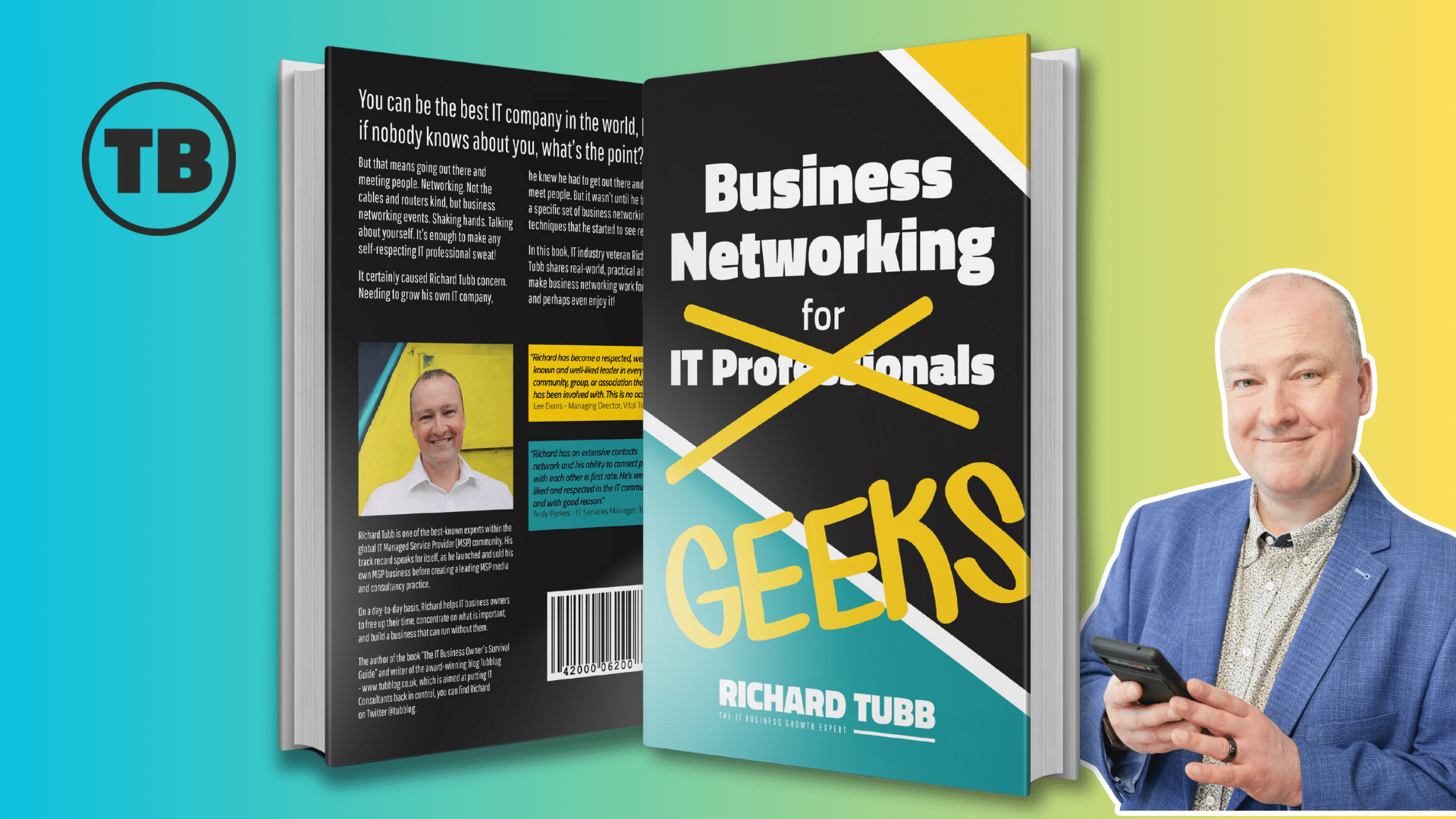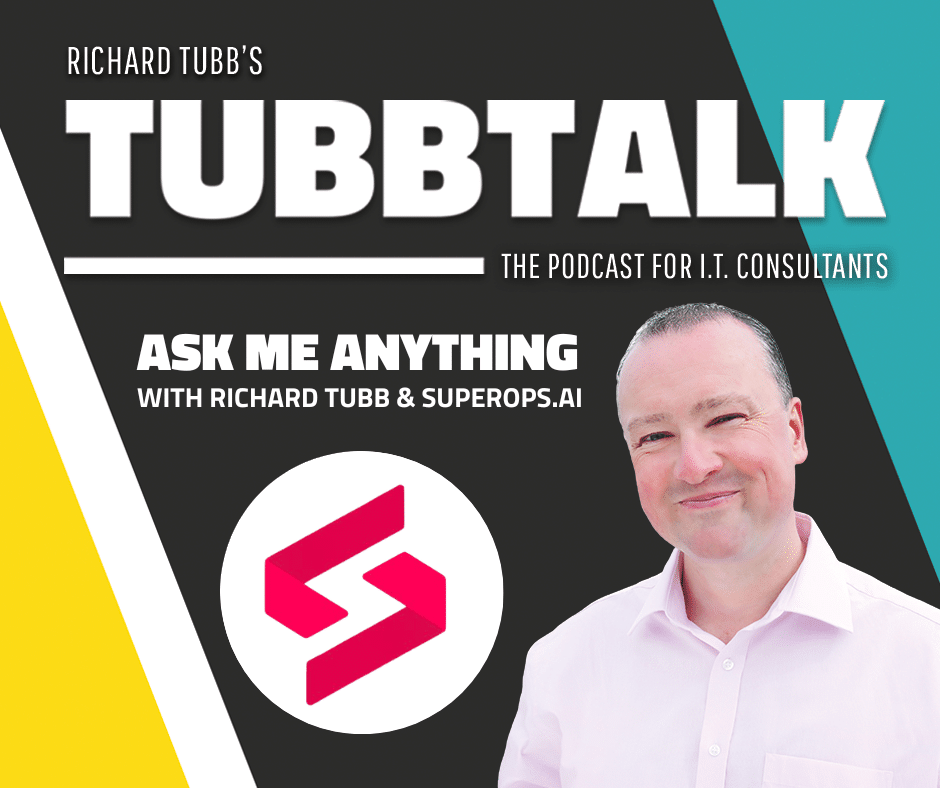My last blog post, entitled “How do you move from being the “IT Guy” into a Trusted Business Advisor?” prompted a lot of responses. It seems that becoming the “Trusted Business Advisor” is the goal of the majority of IT Solution Providers (ITSP’s) and Managed Service Providers (MSP’s), but achieving that status is easier said than done.
One of the techniques I suggested for ITSP’s and MSP’s moving away from providing purely maintenance and support and towards being seen as a valued business partner for clients is to become adept in offering a Customer Relationship Management (CRM) solution that can be customised for a clients specific business needs. There’s no quicker way than to both learn about and demonstrate an understanding of a clients business than taking the deep dive required to deploy a CRM solution.

I’m going to say right now that this blog post isn’t a CRM product comparison. I’m not going to recommend this CRM over another. As with all these types of topics, I do have my own preferred suppliers and software, but that’s based on my own experiences. You should find your own solutions by exploring the options and speaking with your peers on what works and what doesn’t.
I’m also going to preface this list by stating the most important technique for offering CRM solutions that I believe you can adopt. My American friends use a phrase I love – “Eat your own Dog food”. What this means is don’t try to offer a solution to your clients that you don’t use yourself. In the world of IT, that perhaps doesn’t mean you have to use the same CRM package internally that you deploy to client sites – it’s likely that you use an IT industry specific product with CRM-like capabilities such as Autotask or ConnectWise – but it does mean you have processes that support your business internally, targeted and consistent marketing, strong customer management systems in place, and a generally good understanding of the benefits that using a CRM package can bring to a business.
Once you’ve got those things in place, and begin looking at your clients business through new eyes, starting conversations about a CRM solution becomes something that not only you want to do, but knowing the benefits it brings to your client – you can’t help but do.
Back to our list of questions I ask when choosing a CRM vendor. Does the CRM Vendor…
Offer both Hosted and En-Site Solutions
If you work with a vendor who provides purely Hosted based CRM solutions, then seemingly every client you speak to will express concerns about security and ask you for En-Site options.
If you work with a vendor who provides purely En-Site CRM solutions, then seemingly every client you speak to to will express concerns about cost, maintenance and support, and ask you for Cloud options.
Yes, regular readers of this blog will know I’m beating the drum on the Cloud topic again – but the answer remains the same whatever the solution you’re offering. Don’t try to dictate to your client what is best between Hosted and En-Site. Offer them both options and let them come to their own conclusions based on the honest pro’s and con’s.
Offer great levels of support
I define great support as:-
- The Vendor offers support by telephone, e-mail and managed on-line forums that specifically covers your local hours of business
- The Vendors Support team understands they are speaking with an IT company, and not an end-user. When needed we can skip the scripts and deep-dive straight into a techy problem.
- The Vendors Support team offers dedicated implementation help, and doesn’t leave it to the Partner – especially during those first few implementations.
- The Vendor offers training videos and materials allowing you to learn at your own pace, and regular training webinars and Conference calls which allow you to schedule time for your engineers to learn.
- When required to and requested of, the Vendors Support team will speak directly with the end-user to swiftly resolve their issue.
Offers Integration with 3rd Party Products
… with popular accountancy packages. Not just exports and imports, but true integration wherein things such as invoices and credit notes are raised and synchronised back and forth between CRM and Accountancy.
If you’re working in the US, then integration with QuickBooks is essential.
If you’re working in the UK, then integration with Sage is essential.
Check with your existing clients on what Accountancy package they currently use. Then make sure the CRM product you’re looking at supports integration with that package.
Check the Integration has been tested as working with the local version of your Accountancy package. QuickBooks in North America is different to QuickBooks in the UK.
Imports and Exports are still important. Can end-users easily export data to an Excel spread sheet to work on, or are you as the IT company going to be fielding a regular stream of 1st Line Technical Support calls on how to do exports regularly?
Offers *Strong* Integration with Microsoft Outlook
Every CRM package integrates with Microsoft Outlook. But not every CRM-Outlook integration actually works. Outlook hanging. Outlook crashing. Add-ins that have to be deployed individually rather than centrally. One way integration rather than two way synchronisation. All these things can cause a head-ache.
If your client is like the majority and uses Outlook as their trusted source for keeping data, then trying to educate them to instead work solely within the CRM instead will be an up-hill struggle. Strong Outlook integration allows the client to dump data in either Outlook or the CRM, and know the data is then synchronised to both systems for future use.
Product is aimed at SMB’s
There are a lot of CRM products that profess to cover both the Enterprise and the Small and Medium (SMB) business space.
In my experience, choosing a CRM product that is aimed specifically at the SMB space alone pays dividends.
Many vendors definition of what SMB is are radically different. Microsoft defines SMB as 5-500 seats. The rest of us tend to speak about SMB as 5-75 seats.
The easiest way to find out where the CRM vendors product sits is to ask them to describe typically deployments.
Typically, SMB CRM products have a much shorter cycle to deploy, and as an IT company you can teach your staff and clients how to use the system at a basic level in a day or two, not a week.
Licensing costs will be talked about in hundreds instead of tens of thousands, and you’ll be able to buy licenses individually instead of in SMB unfriendly blocks of five or ten.
Offers a mutually beneficial Partnership
Before entering a Partnership with a CRM vendor, ask them what their perfect partner looks like.
If the answer is simply “They sell lots of licenses”, then tread carefully. If you’re taking your first steps into CRM deployment, then you might only do one or two small deals initially whilst you find your feet. You don’t want to sell a product and then not appear on the vendors radar because you’re small fry.
If the answer is “Work with us to grow both our businesses”, then we’re getting closer to a good match. The Vendor might offer Not-for-Resale (NFR) software for internal use, regular training, a steady stream of referrals in your local area and marketing development funds. In return you should offer to make up-front commitments to your vendor about training staff, targeted marketing campaigns you will run, case studies you will help them to develop, and sales targets you will strive to achieve.
My thoughts here are that your small business clients probably work with you because you’re an small business too, understanding the problems and challenges that small businesses face. With that logic in mind, you should probably be looking to work with a CRM vendor who values fewer good quality, deep relationships over larger volumes of relationships.
***
So that’s my take! There are many, many CRM packages out there. But remember that you don’t just want to be selling another box of software here – you want to be offering your clients a real value added service that helps you become a Trusted Business Advisor. That means understanding their business and their business challenges, and working with a CRM partner who supports you in that goal.















Comments
1 thought on How do I choose a CRM Vendor to work with?
LEGRAND CRM PARTNER EVENT – 29TH SEPT –BIRMINGHAM, UK « TUBBBLOG
16TH SEPTEMBER 2011 11:24:33
[...] Disclosure Policy « How do I choose a CRM Vendor to work with? [...]